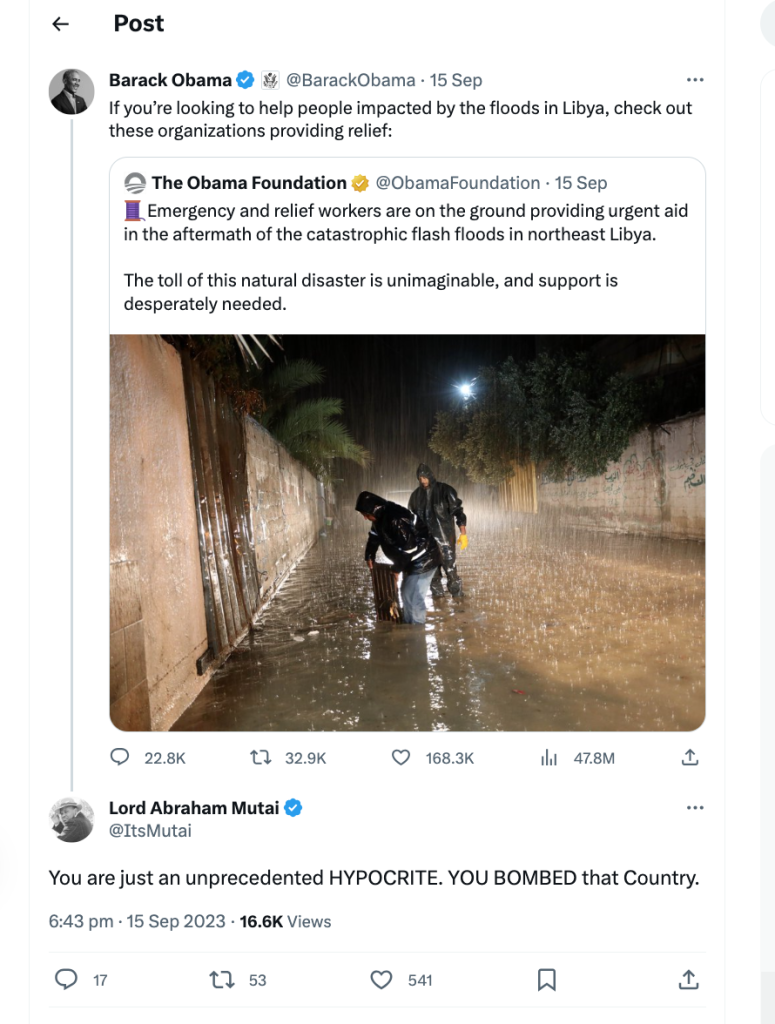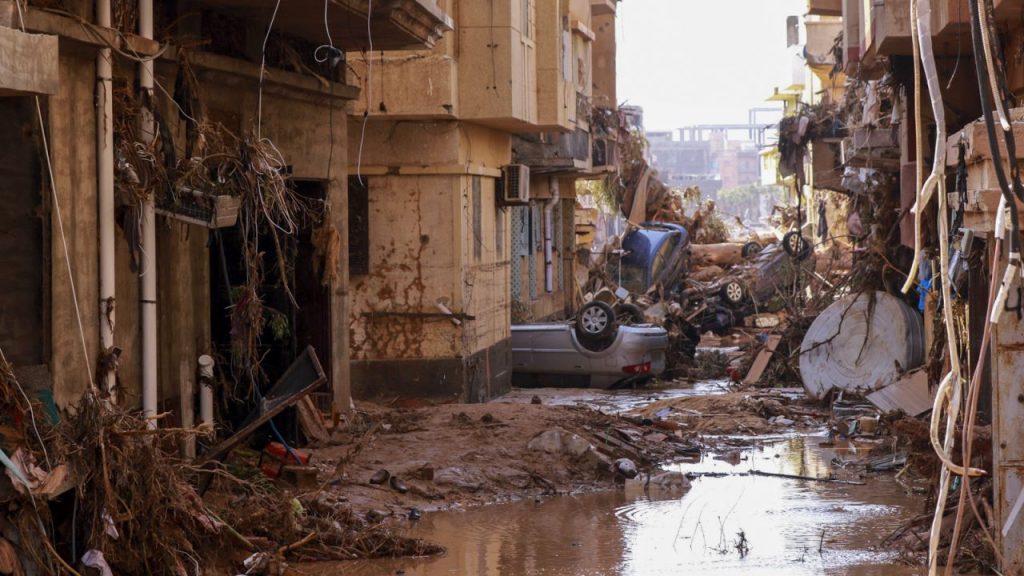Former US President Barack Obama’s called to assist Libya after its devastating floods were he met with criticism, with many accusing him of hypocrisy.
44th President of the United States, Barack Obama slammed for hypocricy on X app formerly known as Twitter.

In 2016, in a Fox News interview aired, Obama said his “worst mistake” was “probably failing to plan for the day after what I think was the right thing to do in intervening in Libya during Muammar Gaddafi’s time”.
He said to-date, ‘Failing to plan’ for the aftermath of Muammar Gaddafi’s downfall is his biggest regret from his time in office.
On Elon Musk’s app, X, Lord Abraham Mutai told Obama that, ” You are just an unprecedented HYPOCRITE. YOU BOMBED that Country.” The argument came after Obama posted asking people in Libya who need help to look through a tweet posted by his own Foundation.
Once upon a time, in the arid lands of Libya, where the sun beat relentlessly upon the golden dunes, the unexpected happened. Raindrops, like precious jewels, began to fall from the heavens. It was a rare occurrence, and the people of Libya greeted it with mixed emotions – joy for the much-needed relief from drought but anxiety over the looming possibility of floods.
Storm Daniel, also known as Cyclone Daniel, was the deadliest and costliest Mediterranean tropical-like cyclone ever recorded in history. It was also the deadliest weather event of 2023 to date in Libya.
The city of Derna in eastern Libya is still digging out and counting the dead after devastating floods struck more than a week ago.

Courstey photo
Thounsands of people have been displaced across northeastern Libya since the extreme rainfall brought by Storm Daniel.
United Nations Office for the Coordination of Humanitarian Affairs (OCHA) at the weekend announced 11,300 dead and 10,100 missing in Derna and an estimated 170 other people killed elsewhere in eastern Libya.

courstey photo
UN agencies have also launched a $71.4 million emergency humanitarian appeal, in addition to $10 million released from the Central Emergency Response Fund (CERF), to provide lifesaving assistance and protection.
For an initial period between September-December, the Flash Appeal targets assistance for 250,000 most vulnerable among some 884,000 people in need.
The floods in Libya served as a stark reminder of the unpredictable nature of our world. Climate change had brought about unusual weather patterns, challenging communities to adapt and come together in the face of adversity.
